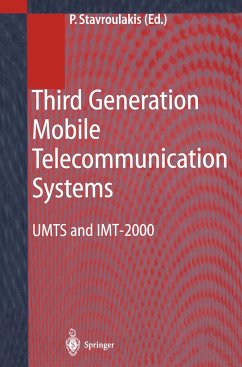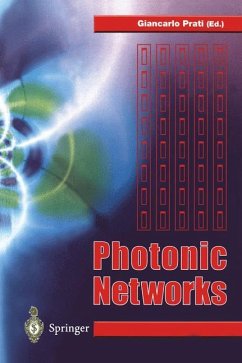
Next-Generation FTTH Passive Optical Networks
Research Towards Unlimited Bandwidth Access
Herausgegeben: Prat, Josep

PAYBACK Punkte
38 °P sammeln!
Fibre-to-the-Home networks constitute a fundamental telecom segment with the required potential to match the huge capacity of transport networks with the new user communication demands. Huge investments in access network infrastructure are expected for the next decade, with many initiatives already launched around the globe recently, driven by the new broadband service demands and the necessity by operators to deploy a future-proof infrastructure in the field. Dense FTTH Passive Optical Networks (PONs) is a cost-efficient way to build fibre access, and international standards (G/E-PON) have be...
Fibre-to-the-Home networks constitute a fundamental telecom segment with the required potential to match the huge capacity of transport networks with the new user communication demands. Huge investments in access network infrastructure are expected for the next decade, with many initiatives already launched around the globe recently, driven by the new broadband service demands and the necessity by operators to deploy a future-proof infrastructure in the field. Dense FTTH Passive Optical Networks (PONs) is a cost-efficient way to build fibre access, and international standards (G/E-PON) have been already launched, leading to new set of telecom products for mass deployment. However, these systems only make use of less than 1% of the optical bandwidth; thus, relevant research is taking place to maximize the capacity of these systems, with the latest opto-electronic technologies, demonstrating that the huge bandwidth available through the fibre access can be exploited in a cost-efficient and reliable manner.
Next-Generation FTTH Passive Optical Networks gathers and analyzes the most relevant techniques developed recently on technologies for the next generation FTTH networks, trying to answer the question: what's after G/E-PONs?
Next-Generation FTTH Passive Optical Networks gathers and analyzes the most relevant techniques developed recently on technologies for the next generation FTTH networks, trying to answer the question: what's after G/E-PONs?














